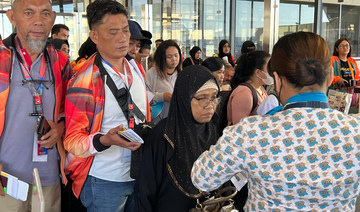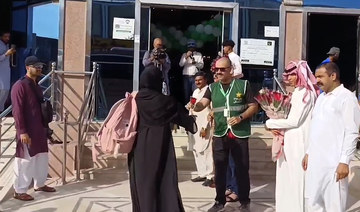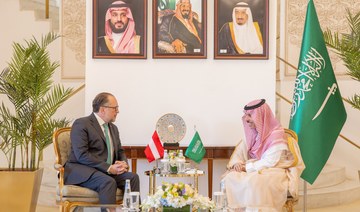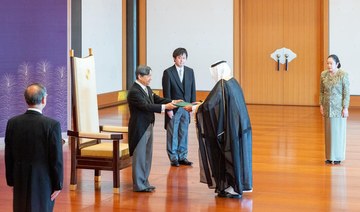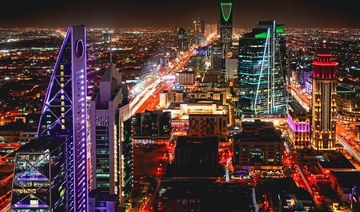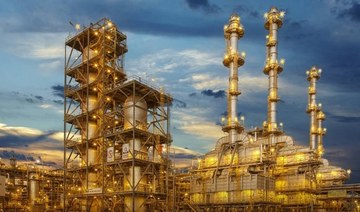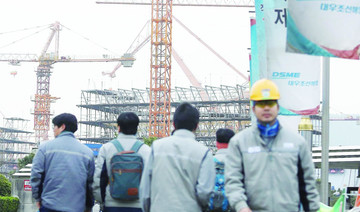JEDDAH: There are thousands of ramshackle buildings across Jeddah, most of them concentrated in old and popular neighborhoods, and the Jeddah Municipality is working on and adopting a development plan to demolish these old buildings to turn Jeddah into a smart city.
Sami bin Saleh Nawar, head of the historical Jeddah Municipality, told Arab News that the municipality adopted development plans for the district in accordance with the Kingdom’s Vision 2030, to include Kingdom on the list of international developed countries on the world map.
According to the municipality’s media center, the municipality deals with ramshackle buildings in accordance with a set mechanism, which involves previewing buildings with signs of damage by a consultant at the municipality. Often the initial recommendation calls for evacuating the building and cutting off electricity, if needed, based on the threat perception.
The municipality has worked on protecting buildings on the verge of collapse by putting in place concrete slabs to prevent people entering the buildings and removing tenants. If it sees further violations, the municipality levies heavy fines on the owner. The municipality has also worked on halting further deterioration of buildings by engaging in partial restoration.
The necessary engineering reports are finalized and the results forwarded to specialized committees, including the Saudi Commission for Tourism and National Heritage, to adopt the recommendations. Accordingly, the owner of the building is then required to put the recommendations of the committee into effect.
Committee officials take tours of the districts to keep an eye on such buildings as the municipality is keen to develop the districts of Jeddah according to international standards.
Nawar said that in the district of Balad, there are almost 1,886 old buildings. Fourteen of the buildings have been propped up out of a total of 30 of the most dangerously poised buildings. A work plan is ongoing to do the same for other buildings, and that 700 buildings are protected. He said 616 buildings are historical, including 52 which are on the verge of collapse, and 38 have been partially deconstructed.
Nawar also said that the municipality, according to Jeddah's development plans, is buying such old buildings and demolishing them, creating new blocks aligned with roads in Jeddah’s old districts according to international standards.
The municipality adopted development plans for Ruwais and Nuzha districts to develop these old areas with wide lanes and new buildings after removing old ones.
The Kingdom has been working over the past 20 years on the development of Saudi cities, in addition to the development of management and planning mechanisms to give a greater role to cities in the decision-making process in successive five-year plans.
Consultants at the municipality are carrying out necessary tests to determine the safety level of buildings and necessary measures will be taken in light of the findings.
Old Jeddah buildings await bulldozers in smart city drive
Old Jeddah buildings await bulldozers in smart city drive
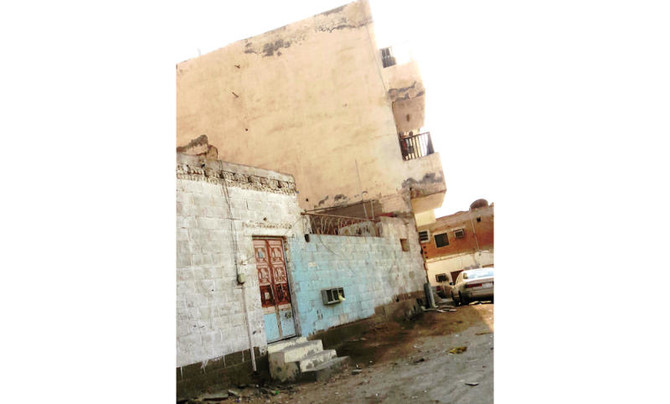
Hajj pilgrims from Uzbekistan, Morocco, Niger and Iraq latest to arrive in Saudi Arabia
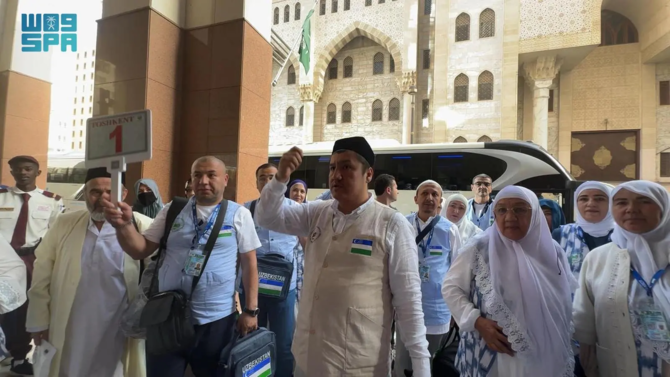
RIYADH: The first group of pilgrims from Uzbekistan, 950 in total, arrived in Makkah on Thursday ahead of Hajj.
Several expressed “gratitude to the Kingdom’s government for the services and facilities that have been provided to make their pilgrimage safe and reassuring,” the Saudi Press Agency reported.
Meanwhile, the Saudi ambassador to Morocco, Sami Al-Saleh, attended a farewell ceremony at Rabat-Sale Airport as the first group of Hajj pilgrims from the country set off for the Kingdom. He was accompanied by the Moroccan minister of endowments and Islamic affairs, Ahmed Toufiq, and other senior government officials.
Similarly, the Saudi ambassador to Niger, Zaid Al-Harbi, saw off the first group of Nigerien pilgrims as they departed from the capital, Niamey. The country’s prime minister, Ali Lamine Zeine, was also present.
Closer to home, a second group of Hajj pilgrims from Iraq arrived at the Arar border crossing in the Northern Borders Province on Thursday, where authorities said they received a warm welcome and benefited from a range of services and procedures designed to streamline entry procedures.
The Iraqi pilgrims expressed their thanks and “commended the Kingdom’s leadership for the generous hospitality and exceptional services provided by the authorities responsible for Hajj affairs,” SPA reported.
They also praised the facilities at the crossing, which officials said will operate around the clock throughout the Hajj season to provide the best possible pilgrimage experience.
Saudi FM discusses Gaza, West Bank with Palestinian PM
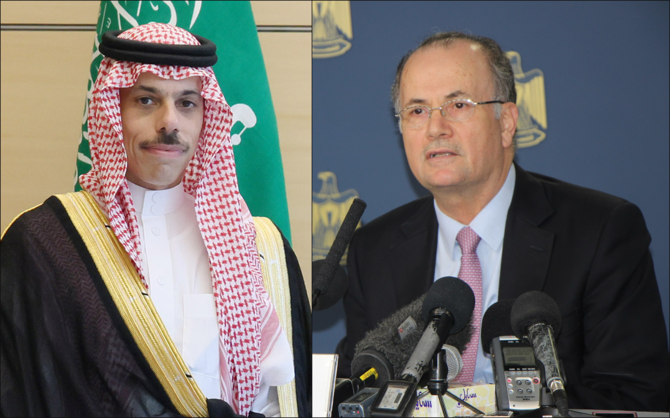
RIYADH: Saudi Foreign Minister Prince Faisal bin Farhan on Thursday spoke to Palestinian Prime Minister and Minister of Foreign Affairs Mohammed Mustafa by telephone, the Kingdom’s Foreign Ministry said.
They discussed developments in the West Bank, Gaza Strip and its surrounding areas.
Oversight and Anti-Corruption Authority issues statement following Riyadh food poisoning incident

- Nazaha says royal directives mandate the holding of all responsible officials accountable
RIYADH: Following the recent food poisoning incident at a Riyadh restaurant, the Kingdom’s Oversight and Anti-Corruption Authority has said anyone found to be negligent in ensuring public health and safety will be held accountable.
The authority, also known as Nazaha, added on Thursday that measures will be taken against anyone found to have obstructed the investigation into the incident and concealed crucial information regarding the cause of poisoning.
Riyadh experienced a wave of food poisoning cases caused by clostridium botulinum at the end of April.
The outbreak was linked to the consumption of food from a Hamburgini fast-food restaurant and led to several hospitalizations and one death.
The Ministry of Municipal, Rural Affairs and Housing later announced that a Saudi Food and Drug Authority laboratory test found clostridium botulinum in the Bon Tum mayonnaise brand used by the food chain.
As a result, the distribution of the mayonnaise product was suspended and it was withdrawn from markets and food facilities across all cities in the Kingdom.
Operations at the Bon Tum factory producing the mayonnaise were halted in preparation for implementing statutory procedures.
Initial investigations by Nazaha “revealed attempts to conceal or destroy evidence, suggesting potential collusion by a small number of unscrupulous food establishment inspectors who prioritized personal gain over public health and safety,” the authority said on Thursday.
Nazaha said that royal directives mandate the holding of all responsible officials accountable, regardless of position.
“This applies to those who neglected or delayed fulfilling their duties, actions which may have contributed to the poisoning or hindered response efforts. Consequently, a high-level committee has been established to verify and oversee the implementation of these directives,” Nazaha said.
Nazaha added that comprehensive reports detailing the circumstances, causes, and those potentially responsible for the poisoning were produced around the clock after the incident.
The reports encompassed laboratory analyses of samples from various establishments and details of medical care provided to suspected victims, it said.
Precise laboratory testing, conducted by local and international foodborne illness specialists, swiftly identified the type and cause of the poisoning, the authority said.
Nazaha said the incident was contained and has been resolved.
Saudi Arabia secures membership in International Transport Forum
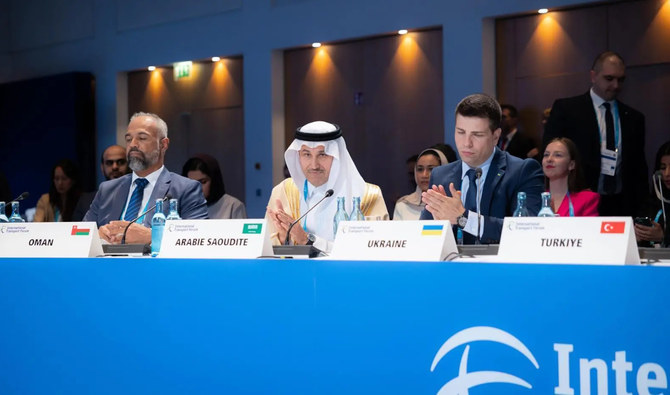
RIYADH: Saudi Arabia secured membership in the International Transport Forum on the sidelines of the event held in Leipzig, Germany.
Saudi Minister of Transport and Logistics Saleh bin Nasser Al-Jasser said that the membership symbolizes the Kingdom’s commitment to addressing transportation challenges through innovative and sustainable solutions. It also supports the Kingdom’s established role in developing the transport and logistics sector, he added, highlighting the Saudi Vision 2030 goal of benefiting from the country’s strategic location to become a global logistics center.
Al-Jasser said that the Kingdom has made significant strides in logistics, jumping 17 places to reach 38th place globally in the logistics services performance index. Additionally, the Kingdom achieved 13th place globally in the IATA’s international air connectivity index and 16th in the maritime navigation network connectivity index. He also noted the launch of a new air carrier, Riyadh Air, aimed at connecting the Kingdom to more than 250 international destinations.
The Kingdom is committed to enhancing the resilience of its transport infrastructure, promoting sustainable mobility and ensuring equitable access to transport services for all, Al-Jasser said.
Saudi membership of the ITF confirms its prominent position in the global transport sector, the minister added. This membership will enable the Kingdom to contribute to enacting legislation and regulations that improve and develop transportation on an international scale, he said.
Italian shipbuilding giant floats Saudi Arabia partnership plan
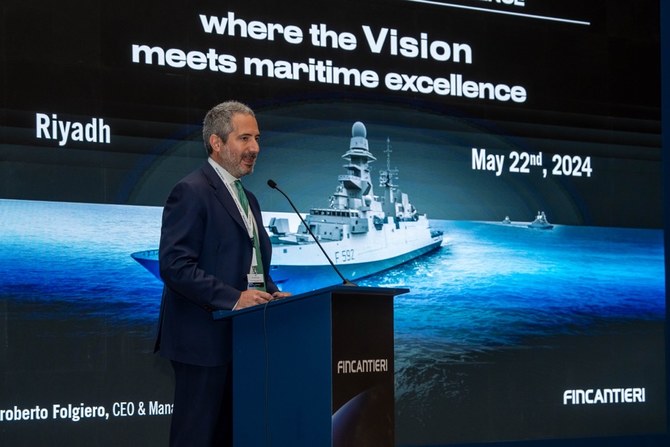
- Fincantieri stands out in the shipbuilding industry for its innovation, says CEO
RIYADH: One of the world’s biggest shipbuilders will work in partnership with Saudi Arabia to strengthen the Kingdom’s maritime sector, with a focus on sustainability and the development of “green shipping.”
Fincantieri, an Italian company and Europe’s largest shipbuilding group, highlighted its commitment to Saudi Arabia’s Vision 2030 agenda at a conference under the theme “Where Vision Meets Maritime Excellence” held in Riyadh on Wednesday.
Saudi decisionmakers from related sectors in Riyadh joined Italian officials in a range of sessions at the forum.
During the event, Fincantieri CEO Pierroberto Folgiero outlined the shipbuilder’s plans to collaborate with Saudi companies in line with Vision 2030.
“Our commitment to the Kingdom of Saudi Arabia is steadfast,” he said.
Fincantieri stands out in the shipbuilding industry for its innovation, and has a leading role in the naval, cruise, and oil and gas sectors, Folgiero said.
The CEO highlighted the importance of developing green ships, designed to minimize the environmental impact of maritime operations, as part of Saudi Arabia’s commitment to achieving net-zero emissions by 2060.
Digitizing shipyard operations through innovations such as AI also aligns with the goals of Vision 2030, Folgiero said.
“Today, the shipping industry and the maritime industry, in general, is coping with environmental regulation. For us, it is not only a source of compliance, but also a source of distinctiveness. So, we believe that in the maritime sector, in the shipbuilding sector, mastering energy transition and new technologies will be a source of competitiveness and distinctiveness,” he said.
“That is why we are engaged in all the solutions (regarding) energy transition at sea. We are a new engine. We are in biofuels. We are in methanol. We are in LNG. We are in ammonia. We are in hydrogen. We are everywhere there is innovation at sea.”
Maria Tripodi, undersecretary of state for foreign affairs at the Italian Ministry of Foreign Affairs and International Cooperation, discussed the significance of keeping operations and businesses sustainable.
Fincantieri’s ships are built to produce zero carbon emissions, which helps to protect the environment and marine ecosystem, she said.
Khalil Ibrahim bin Salamah, deputy minister for industry affairs at the Saudi Ministry of Industry and Mineral Resources, said: “Localization for us is a key factor. Key components are crucial, but the whole supply chain is equally important.”


